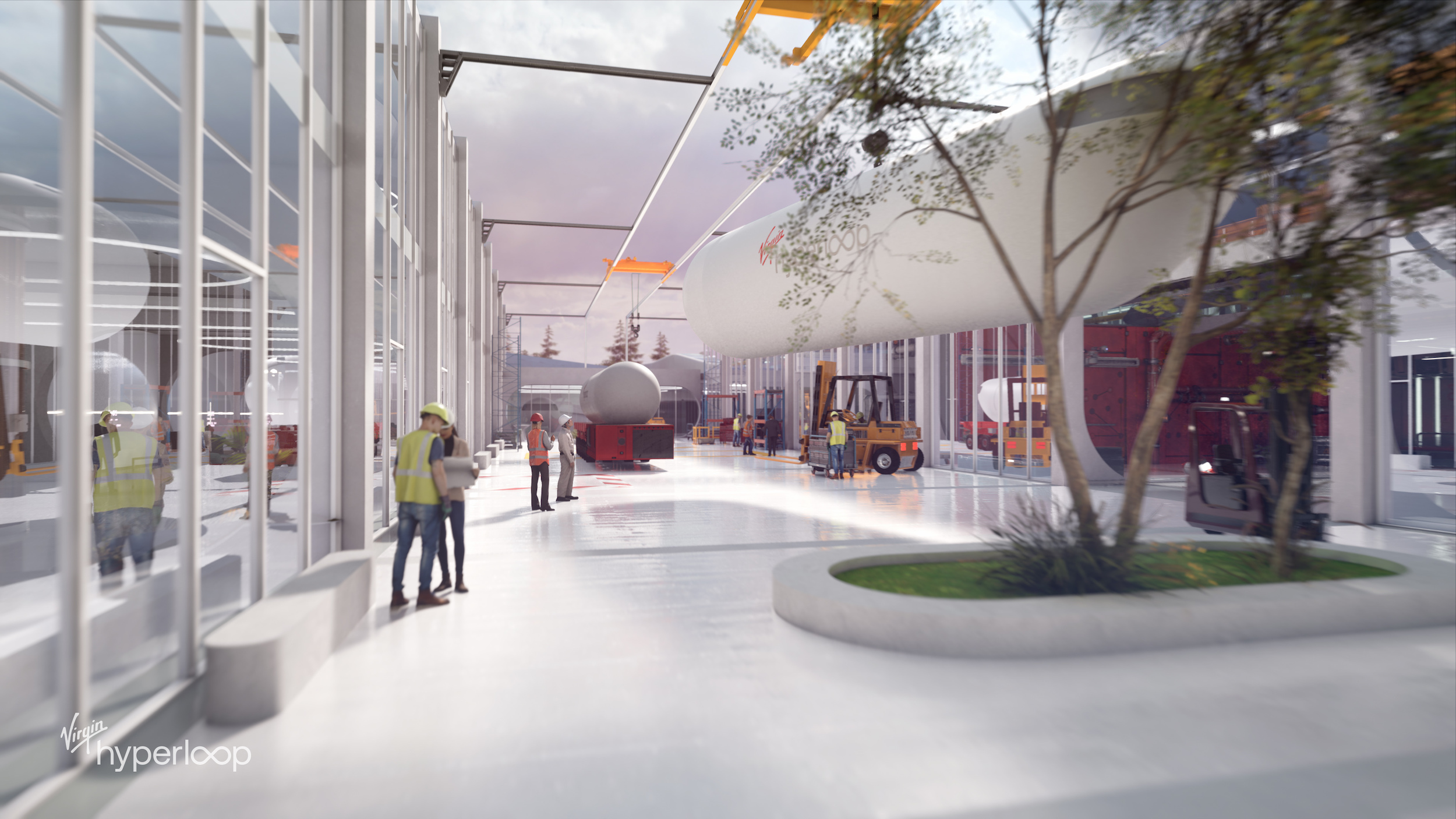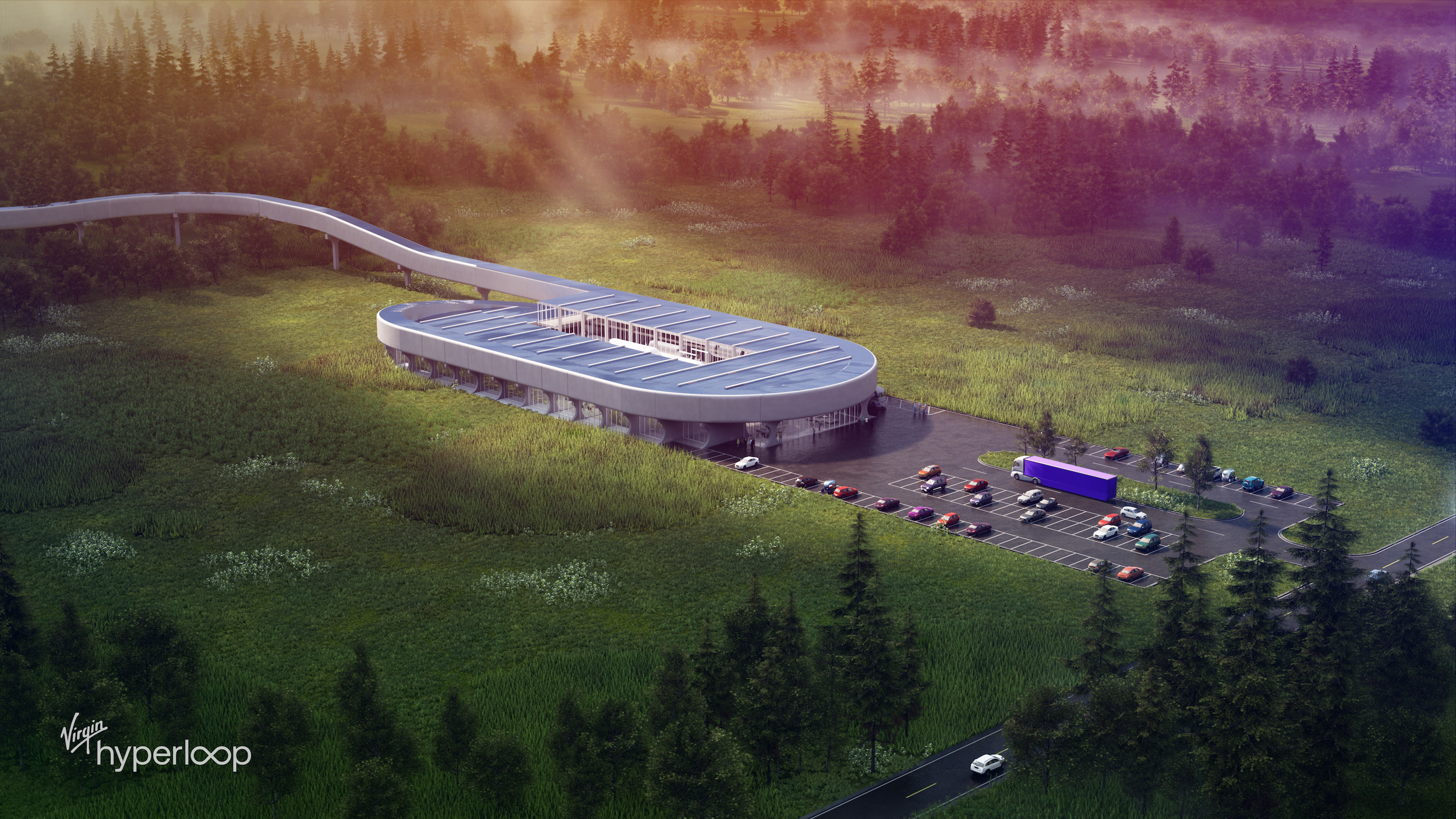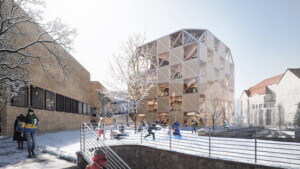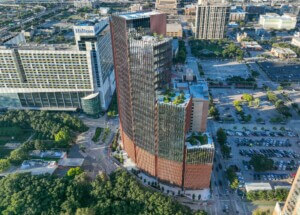West Virginia Governor Jim Justice and Richard Branson’s Virgin Hyperloop (formerly Hyperloop One and Hyperloop Technologies) jointly announced late last week that the Mountain State has been selected as the future home of the first-ever Hyperloop Certification Center (HCC), which will be designed by architectural partner Bjarke Ingels Group (BIG). West Virginia was among 17 states in the running for the new facility that will be dedicated to developing and refining still-very-much-conceptual hyperloop technology. The HCC joins DevLoop, a smaller existing Virgin Hyperloop test site, also designed by BIG, that’s located in the Nevada desert. DevLoop obviously offers a much different setting in which to trial passive magnetic levitation-based capsule transport than the undulating, forested Appalachian landscape of West Virginia that will host the HCC.
Spanning two sparsely populated counties in the Maryland-abutting northeastern section of the state near the small community of Mount Storm, the 800-acre complex will include a welcome center, an all-important six-mile certification track, a pod final assembly facility, a product development test center, and training center for operations, safety, and maintenance. This consolidation is especially important for the Los Angeles-headquartered Virgin Hyperloop as it further develops its ultra-fast, vacuum tube-based high-speed transportation system based on an open-source technology initially conceived by SpaceX and Tesla.
Serving as a regulatory proving ground of sorts, the role of the HCC is a “critical” one as it serves as a “necessary next step in taking proven technology and demonstrating to regulators and certifiers that it works and is safe for passengers” per a press statement released by Justice’s office. Along with Justice and Branson, the virtual announcement was attended by U.S. Department of Transportation Secretary Elaine Chao; West Virginia’s two U.S. Senators, Democrat Joe Manchin and Republican Shelley Moore Capito, and others.

“The Hyperloop Certification Center is the start of the hyperloop journey for West Virginia, for the United States, and for the world,” said Branson in his remarks. “We’re one step closer to making hyperloop travel a reality for people everywhere.”
Chao announced the introduction of a regulatory framework for hyperloop technology relatively recently, in late July. Developed by the Non-Traditional and Emerging Transportation Technology Council, the 22-page Pathways to the Future of Transportation document places hyperloop systems under the regulatory auspices of the Federal Railroad Administration. This makes hyperloop projects eligible for federal grants and other forms of government funding.
Construction on the $500 million HCC, an endeavor expected to generate a large number of local jobs, is set to kick off next year—just four short years ahead of the date that Virgin Hyperloop aims to achieve safety certification. The company is angling to launch commercial operations five years after that in 2030. Once up and zipping at 600 miles per hour or faster, the nascent technology, viewed as a substantially swifter and less polluting alternative to commercial air and car travel along with existing modes of high-speed train travel, has the potential to move people and cargo in levitating pods from Pittsburgh to Chicago, for example, in just over 40 minutes and from New York City to Washington, D.C. in 30 minutes flat. A Virgin Hyperloop hub in Columbus, Ohio, would also potentially be linked into the Pittsburgh–Chicago route.
Additional domestic Virgin Hyperloop routes would link Kansas City with St. Louis via Columbia (30 minutes), Raleigh and Durham via Chapel Hill (9 minutes), and Dallas and Laredo (54 minutes) with stops at Fort Worth, Austin, and San Antonio on the way. Missouri, North Carolina, and Texas were among the 17 states that submitted formal proposals to host the HCC alongside including Washington, Delaware, Georgia, Ohio, Tennessee, New Mexico, both North Dakota and South Dakota, and others.

It’s anticipated that thousands of engineering and technology jobs will be created once HCC is functional and have a major positive economic impact on West Virginia to the estimated tune of $48 million as forecast by West Virginia University (WVU)’s Bureau of Business and Economic Research. WVU and Marshall University, located in Morgantown and Huntington, West Virginia, respectively, are serving as two major partners on the project that Virgin Hyperloop will “leverage intellectual capital and resources” from per a press release.
“West Virginia is well-positioned to provide a fully-integrated solution that advances the nationwide opportunity for hyperloop,” said Jay Walder, CEO of Virgin Hyperloop, in a statement. “The engineering and scientific talent, combined with the skilled workforce and collaborative spirit we know is critical to this project, is all right here.”
The site of a former coal mine, the land that the future HCC will be located on was donated to the WVU Foundation, in partnership with Virgin Hyperloop, by Huntington-based Western Pocahontas Properties.











